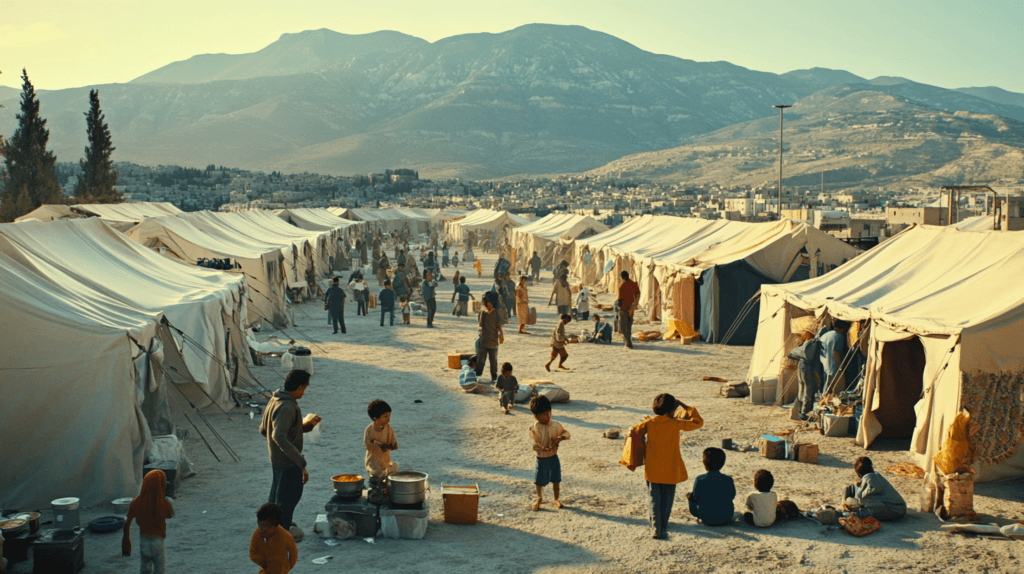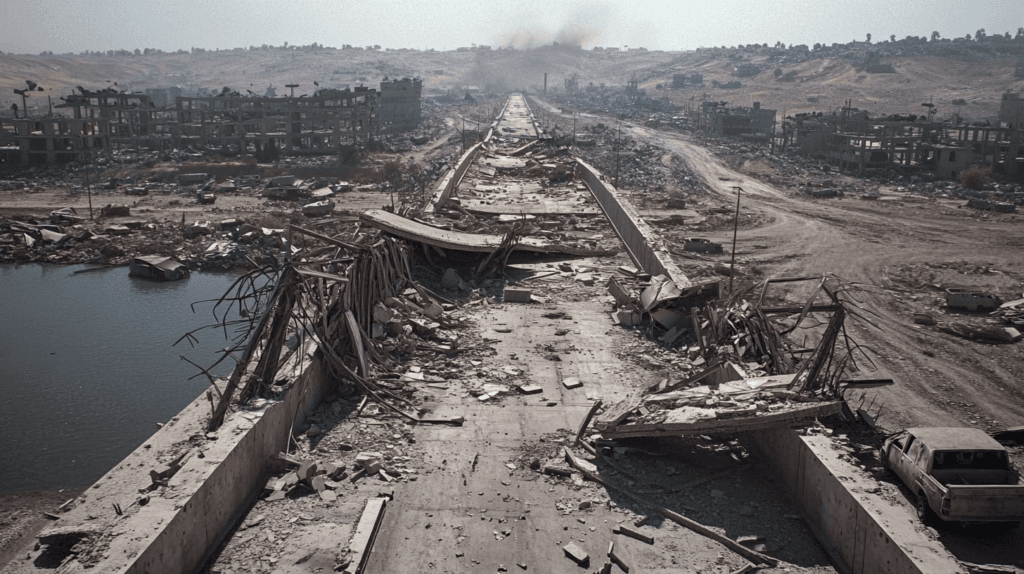The Human Toll of the Israel-Lebanon Conflict: Analyzing the Ongoing Crisis
The Israel-Lebanon conflict is one of the most complex and protracted crises in the Middle East, marked by a history of warfare, political instability, and humanitarian devastation. Since its inception, the conflict has not only defined geopolitical boundaries but has also had a profound impact on the people living in the region. While the political dimensions often dominate headlines, it’s the human cost that tells the real story of this ongoing crisis.
A Brief History of the Conflict
The Israel-Lebanon conflict has its roots in the establishment of Israel in 1948, which led to tensions with surrounding Arab states, including Lebanon. The Lebanese Civil War (1975-1990) and the rise of Hezbollah, a Shiite militant group backed by Iran and Syria, further intensified the situation. Key moments in this long-standing conflict include:
- The Israeli Invasion of Lebanon (1982): This military intervention was aimed at eradicating the Palestinian Liberation Organization (PLO), which was using Lebanon as a base for attacks against Israel. It resulted in mass displacement, widespread casualties, and left Lebanon in ruins.
- The July War (2006): Also known as the Second Lebanon War, this month-long conflict between Hezbollah and Israel caused immense destruction in both countries. The war resulted in over 1,000 Lebanese deaths, most of them civilians, and left southern Lebanon heavily bombarded. Israel also suffered significant casualties and damage to infrastructure.
- Ongoing Skirmishes: Even after the ceasefires, the border between Israel and Lebanon remains tense. Hezbollah’s continued presence in southern Lebanon and the occasional flare-ups of violence serve as reminders that this conflict is far from over.

The Humanitarian Impact
Civilian Casualties
Over the decades, thousands of lives have been lost due to this conflict, most of them civilians. Both Israeli and Lebanese civilians have been victims of rocket attacks, airstrikes, and ground assaults. In the 2006 war alone, 1,191 Lebanese, mostly civilians, were killed, while 165 Israelis lost their lives. Continuous violence has resulted in:
- Injury and Loss of Life: Civilians on both sides suffer disproportionately. Homes, schools, and hospitals in Lebanon have often been targeted, leaving families devastated and infrastructures obliterated. In Israel, residents in border towns live in constant fear of Hezbollah rocket attacks.
- Psychological Trauma: For both Israeli and Lebanese citizens, living under the constant threat of war has led to high levels of stress, anxiety, and PTSD. Children growing up in this environment have faced disrupted education and a profound sense of insecurity, impacting their mental and emotional well-being.
Displacement and Refugee Crisis
One of the greatest tragedies of the Israel-Lebanon conflict has been the massive displacement of people. Waves of violence have forced millions to flee their homes, seeking refuge both within Lebanon and in other countries. Some key aspects include:
- Internal Displacement in Lebanon: Throughout the 1970s, 1980s, and beyond, entire communities in southern Lebanon have had to relocate due to ongoing hostilities. Displaced families often find themselves without access to basic services, living in makeshift shelters or overcrowded camps.
- The Palestinian Refugee Crisis: Lebanon is home to a significant Palestinian refugee population, many of whom fled after the Arab-Israeli wars in 1948 and 1967. These refugees, confined to overcrowded camps and marginalized in Lebanese society, are directly affected by the Israel-Lebanon conflict. The situation for Palestinian refugees in Lebanon remains dire, with limited rights and access to public services.
- Refugees and Asylum Seekers: Many Lebanese have sought asylum abroad, fleeing the violence and seeking better opportunities elsewhere. This exodus has led to a significant brain drain, with the country losing many of its educated and skilled professionals.

Economic Consequences
Damage to Infrastructure
Wars and skirmishes between Israel and Hezbollah have left Lebanon’s infrastructure in shambles. The 2006 war alone destroyed homes, businesses, roads, and bridges in southern Lebanon. The cost of rebuilding is astronomical, and international aid has been slow to meet the needs of the population.

Impact on Agriculture and Livelihoods
Southern Lebanon is home to fertile agricultural land, which has been devastated by the conflict. Israeli airstrikes and cluster bombings have contaminated fields, making farming hazardous and reducing food production. Farmers in these regions have struggled to make ends meet, as conflict and insecurity have driven them away from their land.
For the Israeli population, the economic toll has also been considerable. Residents living near the Lebanese border frequently have to abandon their farms, homes, and businesses when tensions flare. Rocket attacks have destroyed properties, forcing people to rebuild their lives repeatedly.
The Role of Hezbollah
Hezbollah has been at the center of the conflict between Israel and Lebanon. Established in the early 1980s with the backing of Iran, Hezbollah is both a political party and a military organization. Its influence in Lebanon has grown, and it plays a significant role in both domestic politics and foreign relations.
Hezbollah’s Impact on Lebanon
While Hezbollah is seen by some as a protector of Lebanon against Israeli aggression, its involvement in the conflict has drawn Lebanon into wars that have devastated its economy and infrastructure. Hezbollah’s military activities, particularly its rocket attacks on Israel, have often provoked Israeli retaliation, leading to massive civilian casualties and destruction.
Hezbollah and Israel
For Israel, Hezbollah represents a major security threat. The group’s missile capabilities have advanced significantly over the years, allowing them to strike deep into Israeli territory. Israeli military operations in Lebanon, such as airstrikes and incursions, are often framed as defensive measures against Hezbollah’s growing power.
International Response and the Role of the UN
The international community has made several attempts to mediate the conflict, but a lasting resolution has been elusive. The United Nations Interim Force in Lebanon (UNIFIL) has been deployed along the Israel-Lebanon border since 1978 to maintain peace, but its mandate has been repeatedly tested.
The Role of Foreign Powers
Countries like the United States, Iran, Syria, and Saudi Arabia have all played significant roles in shaping the conflict. The U.S. and Israel are close allies, with the U.S. providing military and financial support to Israel. On the other hand, Iran and Syria have been Hezbollah’s chief backers, supplying weapons and financial aid. This foreign intervention has often escalated the conflict, making it harder to find a peaceful resolution.
The Path to Peace: Challenges and Opportunities
Achieving a lasting peace between Israel and Lebanon remains a complex challenge. Some of the key obstacles include:
- The Presence of Hezbollah: As long as Hezbollah remains armed and active in southern Lebanon, the potential for conflict with Israel remains high.
- Border Disputes: The contested Shebaa Farms, a small strip of land claimed by Lebanon but occupied by Israel, remains a flashpoint for conflict.
- Political Instability in Lebanon: Lebanon’s fragile political system, with deep sectarian divides and the influence of foreign powers, complicates any attempts at negotiation.
However, there are some signs of hope. International diplomacy, particularly through UN peacekeeping efforts, has helped to stabilize the region in the short term. Regional cooperation, humanitarian aid, and grassroots peacebuilding initiatives could pave the way for a more peaceful future.
Conclusion
The Israel-Lebanon conflict is not only a geopolitical struggle but also a humanitarian crisis of immense proportions. The human toll—civilian deaths, displacement, economic devastation, and psychological trauma—continues to be a central tragedy of the ongoing crisis. While political solutions remain elusive, it is essential that the world acknowledges the devastating impact this conflict has had on the people of Israel and Lebanon, and work towards a lasting peace that prioritizes their safety and well-being.




No Comment! Be the first one.